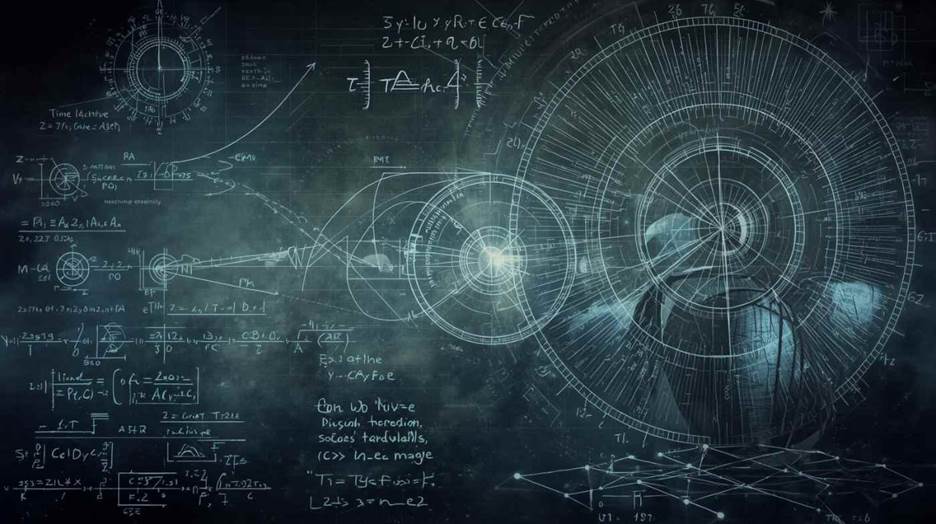Time travel paradox has long been one of the most debated and captivating concepts in science, philosophy, and science fiction. The idea challenges our understanding of reality, raising questions about causality, free will, and the very structure of time itself. From literature to advanced physics, discussions of time travel paradox highlight the potential consequences and contradictions that arise if humans were ever able to move backward or forward in time. To understand this complex subject, we must explore its meaning, different paradoxes, scientific perspectives, and philosophical implications.
Understanding the Time Travel Paradox
Defining the Concept
A time travel paradox occurs when the possibility of traveling through time creates logical contradictions. For example, if someone goes back in time to prevent their own birth, the question arises of how they could exist to travel back in the first place. Such contradictions spark endless debate about whether time travel is possible within the laws of nature.
Origins in Literature and Philosophy
The idea of time travel paradox has roots in ancient mythology and storytelling but became more prominent in modern literature and cinema. Writers like H.G. Wells and countless filmmakers have used paradoxes to explore the consequences of altering history. These stories reflect both human curiosity and the fear of disrupting the natural flow of events.
Types of Time Travel Paradox
The Grandfather Paradox
Perhaps the most famous example of a time travel paradox is the Grandfather Paradox. It asks what would happen if a time traveler went back and prevented their grandfather from meeting their grandmother. Without that meeting, the traveler would never be born, meaning they could not have traveled back in time at all. This logical loop demonstrates the central problem with altering past events.
The Bootstrap Paradox
Another intriguing time travel paradox is the Bootstrap Paradox, also called a causal loop. In this case, an object or piece of information is sent back in time, creating a situation where its origin cannot be determined. For instance, if a scientist receives blueprints for a time machine from their future self and then builds it, who actually created the design? This paradox blurs the line between cause and effect.
The Predestination Paradox
The Predestination Paradox occurs when a time traveler’s actions in the past are the very events that lead to their journey in the first place. This type of time travel paradox suggests that attempts to change history might only ensure that events happen exactly as they were meant to, locking individuals in a cycle of inevitability.
Scientific Perspectives on the Time Travel Paradox
Physics and Theories of Time
Modern physics examines whether time travel paradox scenarios can exist under known laws. Einstein’s theory of relativity allows for the bending of time through extreme gravity or speed, but it also introduces questions about causality. Wormholes and closed timelike curves are theoretical constructs that could permit time loops, but they remain speculative.
The Multiverse Hypothesis
One way to address the time travel paradox is through the multiverse theory. This idea suggests that altering the past does not change the present timeline but instead creates a new branch of reality. In this framework, paradoxes like the Grandfather Paradox may be avoided, since the traveler’s actions would simply generate an alternate universe.
Quantum Mechanics and Probability
Some interpretations of quantum mechanics also attempt to resolve the time travel paradox. The many-worlds interpretation proposes that all possible outcomes exist simultaneously across different realities. Thus, traveling back in time would not create contradictions but instead shift the traveler into another version of events.

Philosophical and Ethical Implications
Free Will and Determinism
The time travel paradox raises profound questions about free will. If traveling back in time locks events into cycles or predestined outcomes, then personal choice might be an illusion. Conversely, if alternate timelines exist, every decision could spawn countless new realities, expanding the concept of freedom.
Ethics of Altering the Past
If time travel paradox scenarios were real, the ethical dilemmas would be immense. Should humans interfere with history to prevent tragedies, or would such interference create even worse consequences? Philosophers argue that even with good intentions, altering the past could unravel the stability of the future.
The Role of Time Travel Paradox in Popular Culture
Literature and Film
From H.G. Wells’s The Time Machine to modern blockbusters, time travel paradox remains a central theme in storytelling. Films like Back to the Future, Interstellar, and Avengers: Endgame explore how paradoxes shape narrative tension, making audiences question what is possible.
Inspiring Scientific Inquiry
Though often fictional, the idea of time travel paradox inspires real scientists to explore the nature of time, causality, and the universe. It encourages both curiosity and caution, reminding us of the delicate balance that governs reality.
Conclusion
Time travel paradox remains one of the most fascinating puzzles of human imagination and scientific exploration. Whether in the form of the Grandfather Paradox, Bootstrap Paradox, or Predestination Paradox, these scenarios highlight contradictions that challenge logic and physics. While theories like the multiverse and quantum mechanics provide possible resolutions, no definitive answer exists yet. What is certain, however, is that the time travel paradox will continue to captivate thinkers, scientists, and storytellers alike. By questioning the boundaries of time, humanity deepens its understanding of the universe and its place within it.